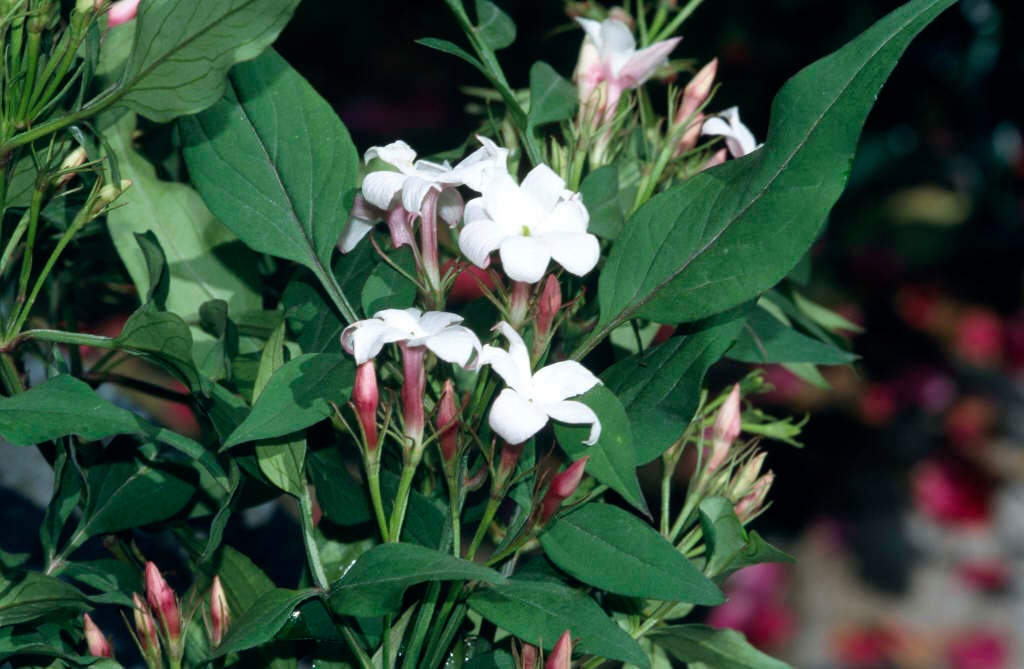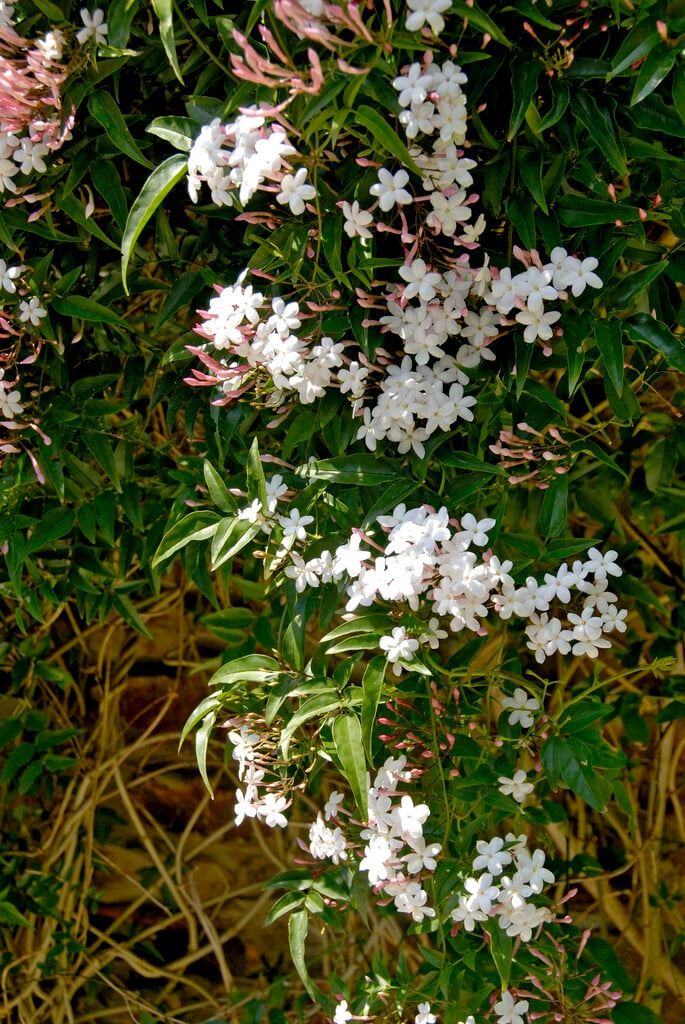Jasminum officinale f. affine
large-flowered jasmine
A large, deciduous, climber to 12m in height, bearing mid-green leaves with 7-9 leaflets. Very fragrant, large, white flowers, often pink tinged on the reverse of the petals, open in terminal clusters of 3 to 10 in summer and early autumn, sometimes followed by blackish-purple fruits
Synonyms
Jasminum officinale 'Affine'Jasminum officinale 'Grandiflorum'
see moreJasminum officinale var. grandiflorum hort.
Jasminum affine
Jasminium aureum
Jasminum grandiflorum misapplied
Size
Ultimate height
4–8 metresTime to ultimate height
5–10 yearsUltimate spread
0.5–1 metresGrowing conditions
Moisture
Moist but well–drained, Well–drainedpH
Acid, Alkaline, NeutralColour & scent
| Stem | Flower | Foliage | Fruit | |
| Spring | Green | |||
|---|---|---|---|---|
| Summer | Pink White | Green | ||
| Autumn | Pink White | Green | Black | |
| Winter |
Position
- Full sun
- Partial shade
Aspect
South–facing or West–facing
Exposure
Sheltered Hardiness
H5Botanical details
- Family
- Oleaceae
- Native to GB / Ireland
- No
- Foliage
- Deciduous
- Habit
- Climbing
- Genus
Jasminum are evergreen or deciduous shrubs, many climbing by twining stems bearing usually pinnate leaves, and star-shaped white, pink or yellow flowers, which are sometimes very fragrant. Fruit a black berry
- Name status
Correct
How to grow
Cultivation
To bring out the sweet fragrance of the flowers, the ideal planting position should be warm, sunny and sheltered but it will cope with partial shade and colder positions provided the soil is well-drained
Propagation
Propagate by layering, hardwood cuttings or semi-hardwood cuttings
Suggested planting locations and garden types
- Coastal
- City and courtyard gardens
- Cottage and informal garden
- Wildlife gardens
- Wall side borders
- Climber and wall shrubs
Pruning
Prune out thin, old shoots after flowering
Pests
May be susceptible to aphids, scale insects and mealybugs and glasshouse red spider mite under glass
Diseases
May be susceptible to honey fungus (rarely)
Love gardening
Sign up to receive regular gardening tips, inspiration, offers and more
View our Privacy Policy
Get involved
The Royal Horticultural Society is the UK’s leading gardening charity. We aim to enrich everyone’s life through plants, and make the UK a greener and more beautiful place.

